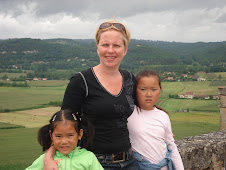
Jingmen Travel Guide
Population: 3,006,000
Area: 12,100 square kilometers (4,671 square miles)
Nationalities: Han
Administrative Division: 2 districts (Dongbao, Duodao); 2 counties (Shayang, Jingshan); 1 county-level city (Zhongxiang)
Useful Telephone Numbers:
Tourist Complaints: 0724-2376134, 2376997
Weather Forecast: 121
Zip Code Inquiry: 184
Location: Located in the heart of Hubei Province, Jingmen can be the communication hub inside the province. It is 217 kilometers (315 miles) west of the provincial capital, Wuhan, 120 kilometers (75 miles) east of Yichang City. Bounded on its south and north are Jingzhou and Xiangfan.
History: Although this area was inhabited as early as the Neolithic Age, it was established as an administrative unit in late Shang Dynasty (16th - 11th century BC). The name of Jingmen began in the Tang Dynasty (618-907) when the government established county to administrate this area.
Physical Features: Lying between the Jingshan Mountain and the Jianghan Plain, Jingmen has lower mountains and hills in its northwest and central part. Plains and lakes are mainly distributed in southern Jingmen.
Climatic Features: Enjoying a subtropical monsoon climate, the city has a relatively temperate weather, rich in rainfall and sunshine. With clear four seasons, it has an annual average temperature of 16C (61F).
When to Go: Spring and autumn are the most favorable seasons to Jingmen.
Special Local Products: wild kudzu root powder, artemisia selengensis (li hao)
Scenic Spots:
Xianling Tomb of the Ming Dynasty: 7.5 kilometers (4.7 miles) from the Zhongxiang City, the tomb was built in 1540 by the Jiajing Emperor to commemorate his father. It covers an area of 600 mu (99 acres), surrounded by 3.6-kilometer-long (2.2-mile-long) vermeil high walls. Two gates are built in the front part connected with the inner part by a 1,300-meter-long (1,422-yard-long) path paved with slates, whose two sides was stood by varied statues of animals and figures. The grand tomb was list among the World Heritage in 2000.
Huangxian Cave: As the principal sight of the Dahongshan Scenic Spot in Zhongxiang. The cave lies at the south foot of the Dahong Mountains, containing the cave of 2,000 meters (2,187 feet) long and a deep pool. Inside the cave, the 20,000 square meters (23,920 square yards) cave lotus is the most spectacular landscape of the karst cave.
Tourist Tips:
On the Baiyun Avenue (Baiyun Dadao), three major bus stations are located, providing buses to Wuhan, Yichang and some other cities. Buses to Wuhan depart every 20 to 30 minutes with one and a half hours' drive. Every 20 to 40 minutes, buses to Yichang will take about 50 minutes to their destination.
Zhongtian Street (Zhongtian Jie) and Changning Avenue (Changning Dadao) can be the busiest areas of Jingmen City, gathering many shopping malls and supermarkets. They are good locations to find all kinds of authentic Jingmen specialities.


No comments:
Post a Comment